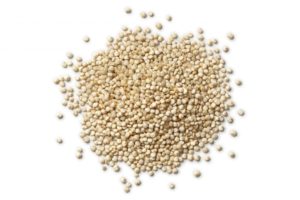Wellness
BlogHer: Through My Lens
Health. When you hear that word, what comes to mind? What about when someone says, “I’m living a healthy lifestyle?” What does that mean to you? What does it mean to the world? Today, when celery cleanses and keto diets are all the rage, it appears the meaning of health is directly related to one’s waistline. However, “health,” as defined by the World Health Organization, is “a state of complete physical, mental and social well-being and not merely the absence of disease or infirmity” (WHO 2019).
Can Exercise Improve Mental Health?
Exercise has proven benefits for improving physical health. But what about mental health? For starters, active people are nearly 45% less likely to have depressive symptoms than inactive people (Booth, Roberts & Laye 2012). But a deeper look at the connections between exercise and mental health raises complicated questions:
Muscle Mass as a New Vital Sign
Fitness professionals understand the importance of building and maintaining lean body mass for functional mobility and health. New research shows that medical professionals should also be promoting this message to their patients. “Muscle mass should be looked at as a new vital sign,” said principal investigator Carla Prado, PhD, RD, associate professor at the University of Alberta, Canada. “If healthcare professionals identify and treat low muscle mass, they can significantly improve their patients’ health outcomes.
Help Clients Adopt Healthy Nutrition and Behaviors
The IDEA World Nutrition and Behavior Change Summit was founded on the notion that information is important, but it’s less effective without the ability to help clients adapt it to their lives. Now, in its 4th year, the summit has become one of the most popular segments of IDEA World, with 2 full days of education and experiences featuring some of the top nutrition and behavior change experts.
Finding the Right Credential: Meeting Your Potential
As your clients resolve to shed bad habits and holiday pounds, you probably have a few personal goals of your own this year. Maybe you want to better help clients in the new year or advance your career. Maybe you want to start your own business or increase your earning potential.
Techniques for Mindful Recovery
High-intensity interval training has been all the rage for a while now, but participants are finally starting to recognize the benefits of recovery. During this restorative phase, the body repairs itself, which leads to optimal training improvements. The following class supports the recovery process by exploring mindfulness, relaxation and breathing techniques. It also addresses body awareness, muscle tension and myofascial trigger points. Make this a stand-alone 60-minute class or condense it to a 30- or 15-minute session.
Ditching the Diet Mentality
Did you know that dieting is ineffective at best and counterproductive at worse, with up to two-thirds of dieters regaining more weight than they lose (Mann et al. 2007)? Isn’t there a better way to eat healthfully?
One option is intuitive eating, which forgoes dieting and focuses on driving long-term improvements in your relationship with food. “Intuitive eating is the ability to read, interpret and follow your internal cues regarding the right amount of food for your body,” says Krista Scott-Dixon, PhD, curriculum director at Precision Nutrition.
Feeling Blue? Eating More Fiber Could Help
Lifting your spirits might be as easy as adding more beans and other fiber-rich foods to your plate. A study published in the journal Nutrition in October 2018 found that people who reported eating the most fiber overall (including from cereal grains, vegetables and fruits) had fewer depressive symptoms. The data came from 16,807 American adults enrolled in the National Health and Nutrition Examination Survey (NHANES).
Exercise Is Good for Mental Health
STUDY REVIEWED: Chekroud, S.R., et al. 2018. Association between physical exercise and mental health in 1.2 million individuals in the USA between 2011 and 2015: A cross-sectional study. Lancet Psychiatry, 5 (9), 739–46.
Exercise has proven benefits for improving physical health. But what about mental health? For starters, active people are nearly 45% less likely to have depressive symptoms than inactive people (Booth, Roberts & Laye 2012). But a deeper look at the connections between exercise and mental health raises complicated questions:
Wonder Women
CLIENT: Kim Emery | PERSONAL TRAINER: Tanya Roark | LOCATION: Balance Health + Fitness, Sarasota, Florida
“She’s the real Wonder Woman,” says Tanya Roark, an ACE-certified personal trainer, speaking of her client Kim Emery, “one of the most amazing women you could ever meet.”
Dig a little, and you’ll find there are really two superheroes in this story—a client overcoming seemingly insurmountable odds and a trainer willing to power through to help that client reach her goals.
Mental Fatigue and Endurance Performance
New studies are providing growing evidence for how mental training and mindset relate to athletic performance.
Elevate Your Career and Live Your Passion
Your purpose as an impassioned personal trainer, manager and owner is to deliver life-changing fitness experiences for your clients. Education is the key driver to success. Here are five tips from fitness professionals.
1. Recovery is critical.
Nutrition Adherence: Making Lifestyle Changes That Stick
Research has shown that the best weight loss plan is the one people can stick with for the long term (Johnston et al. 2014). For some, that may be a low-carbohydrate, high-protein diet. For others, it may be a high-carbohydrate plan that’s low in saturated fat. Yet another group may need a complete macronutrient balance.
The Confidence-First Approach to Weight Loss
Benefiting from family ties. When 20-year-old Erick first met Ethan Kopsch, NASM-certified personal trainer and owner of Bird Rock Fit in La Jolla, California, Erick was less than eager to start a training program. Kopsch had been training Erick’s mom for some time, and she was so pleased with her progress that she encouraged Erick and her daughter, Michelle, to work with the trainer.
Integrated Wellness Programs Create Fitness Opportunities
With 28% of employers offering workplace fitness competitions and challenges, according to the Society for Human Resource Management’s 2017 Employee Benefits report, corporate wellness programs continue to supply good news for fitness professionals.
Employers are encouraging people to be more active because research has shown that sitting for long periods of time is associated with negative health outcomes like obesity, heart disease and an increased risk of earlier death.
Mindful Movement May Reduce Stress and Anxiety
Encouraging clients to increase body awareness and pay attention to their surroundings when being physically active may reduce stress.
Stay Strong to Increase Longevity
Here’s more motivation to stay on top of your functional strength training program. Researchers from China and Indiana University analyzed data from 4,449 older adults in the National Health and Nutrition Examination Survey and found that older people with low muscle strength had more than twice the risk of dying during the study than those with normal muscle strength.
Dehydration Impairs Cognitive Performance
Keep reminding clients to drink plenty of fluids. New research shows that cognitive abilities—attention, coordination, complex problem solving and reaction time—begin to decline with as little as 1% loss of body mass from dehydration, with more severe impairments showing up at 2%. Dehydration affects attention first and with more severity than other cognitive abilities.
Healthy Habits Save Lives
A healthy lifestyle—including being physically active, eating a nutritious diet and not smoking—plays a significant role in living a longer, healthier life. This conclusion emerged from an observational study of 7,000 men and women aged 25–74 who were periodically assessed over a 35-year period. Researchers based the analysis on the American Heart Association’s definition of ideal cardiovascular health. This definition includes absence of clinical heart disease, together with positive outcomes on “Life’s Simple 7” health metrics:
Full-Fat Dairy Makes a Comeback?
An ever-expanding pile of research papers is challenging the idea that we need to avoid full-fat varieties of dairy products like yogurt and milk. There may be no need to settle for fat-free versions that could be less satisfying: For instance, a new study published in The American Journal of Clinical Nutrition involving more than 2,900 U.S. seniors aged 65 and above found that whole-fat dairy consumption appears to do little harm when it comes to cardiovascular disease.



















